In the rapidly evolving landscape of logistics and supply chain management, efficient shipping solutions have become paramount. The global freight containers market, projected to reach $13 billion by 2025, underscores the growing importance of innovative shipping technologies and practices. Industry experts emphasize that the selection of the right freight containers can significantly enhance operational efficiency and reduce costs. According to Dr. Emily Richter, a renowned logistics strategist,
"The future of shipping lies in our ability to adapt to advanced freight containers that cater to diverse cargo needs while optimizing sustainability."
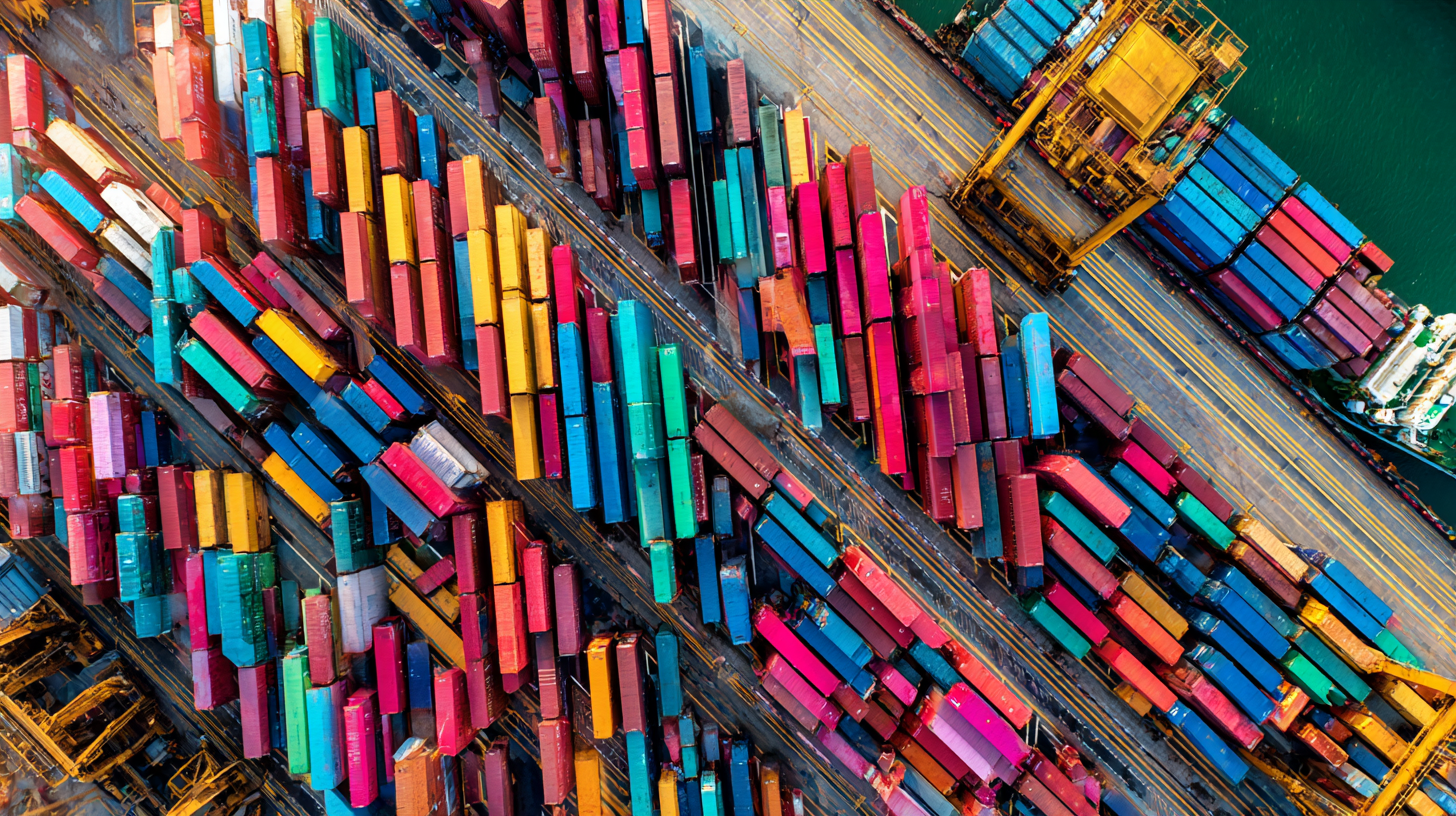
As we delve into the must-know freight containers for 2025, it is crucial to consider factors such as design, capacity, and adaptability to various transport modalities. Recent studies suggest that the adoption of smart containers, which feature tracking and monitoring capabilities, can improve visibility throughout the shipping process, thus reducing delays by up to 30%. Furthermore, with an increasing focus on environmental sustainability, the industry is moving towards containers that minimize waste and utilize recyclable materials.
Understanding the types of freight containers available and their applications will empower stakeholders—from manufacturers to logistics providers—to make informed decisions that align with their operational goals. This knowledge is not only vital for maximizing efficiency but also for fostering a competitive edge in an increasingly data-driven market.
In 2025, the logistics industry is witnessing a significant transformation driven by advanced technology and sustainability. The leading freight containers are now equipped with innovative features that enhance operational efficiency and reduce environmental impact. According to the International Council on Clean Transportation, the adoption of lightweight materials in container design can reduce shipping emissions by up to 15%, making it crucial for companies aiming to meet global sustainability targets.
One standout innovation is the integration of IoT (Internet of Things) technology, enabling real-time tracking and monitoring of cargo conditions. A report from the Logistics Management Institute indicates that companies implementing such smart containers have seen a 20% decrease in inventory losses and a 30% improvement in on-time deliveries. Furthermore, advancements in temperature-controlled containers allow for the safe transportation of perishable goods over longer distances, ensuring product quality and safety. As the market evolves, these features are becoming essential for shippers looking to optimize their operations and provide better service to their customers.
As the logistics industry increasingly focuses on sustainability, eco-friendly freight containers are emerging as a critical component of efficient shipping solutions. These containers are designed not only with functional efficiency in mind but also to minimize their environmental impact. Materials like recycled steel, bamboo, and even bioplastics are being utilized to create containers that are lighter, stronger, and more energy-efficient. This shift not only reduces waste but also contributes significantly to lower carbon footprints associated with transportation.
**Tips for Choosing Eco-Friendly Containers:**
1. Look for certifications that indicate sustainable sourcing of materials.
2. Opt for containers designed for multi-use, which helps in conserving resources.
3. Research companies that prioritize sustainable practices in their packaging and shipping processes.
Additionally, the design of these containers is becoming more innovative, with features that enhance their sustainability. For example, some modern containers come equipped with renewable energy sources, such as solar panels, enabling them to power integrated systems and monitor cargo conditions without relying on fossil fuels. Embracing these eco-friendly options can lead to a more sustainable and cost-effective shipping strategy for businesses looking to reduce their environmental impact while enhancing operational efficiency.
This chart displays the estimated sustainability scores of the top 5 eco-friendly freight containers based on factors such as material recyclability, energy efficiency, and carbon footprint during production.
The integration of smart technology into freight container design is revolutionizing the logistics industry, paving the way for more efficient shipping solutions. According to a report by Allied Market Research, the global smart container market was valued at approximately $1.7 billion in 2020 and is projected to reach $8.3 billion by 2027, growing at a CAGR of 25.5%. This surge in adoption is fueled by the demand for real-time tracking and monitoring systems that enhance transparency in the supply chain.
Smart containers are equipped with IoT devices that provide location tracking, temperature monitoring, and security features that safeguard cargo integrity. The International Maritime Organization (IMO) noted that using smart technology can significantly reduce shipping delays and losses, with predictive analytics improving operational decisions. Additionally, a study by McKinsey & Company estimates that digitizing logistics processes could generate $1.5 trillion in economic value globally by 2025. With advancements in container design that incorporate these technologies, businesses can optimize shipping routes, minimize costs, and reduce carbon footprints, ultimately leading to a more sustainable logistics future.
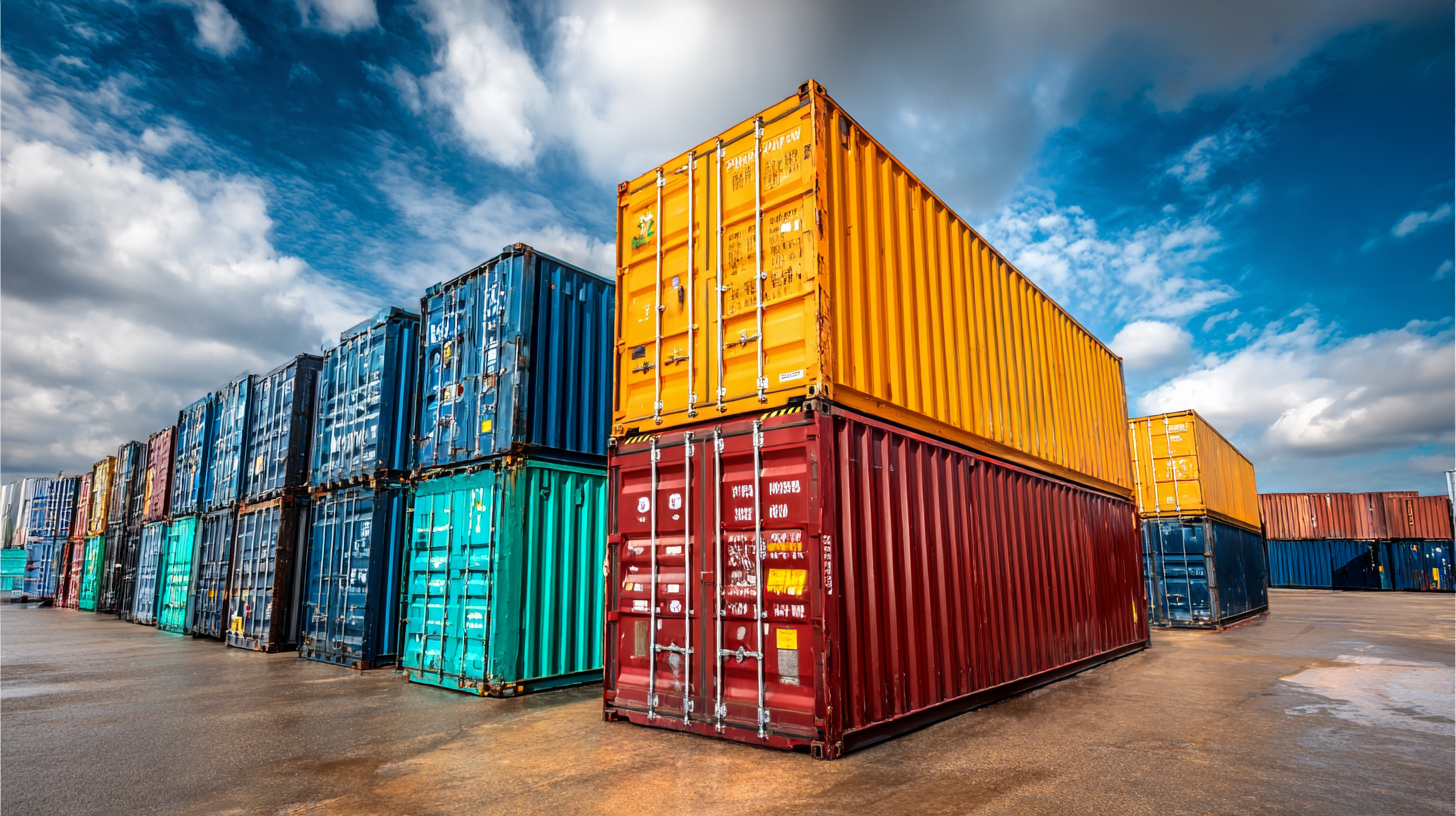
In 2025, cost-effective shipping solutions will be essential for budget-savvy shippers looking to optimize their freight operations. According to the International Maritime Organization, nearly 90% of global trade is carried by sea, making freight containers a central component of logistics strategies. Adopting efficient container options can significantly reduce transportation costs, with some studies indicating that implementing advanced container management systems can cut expenses by up to 25%.
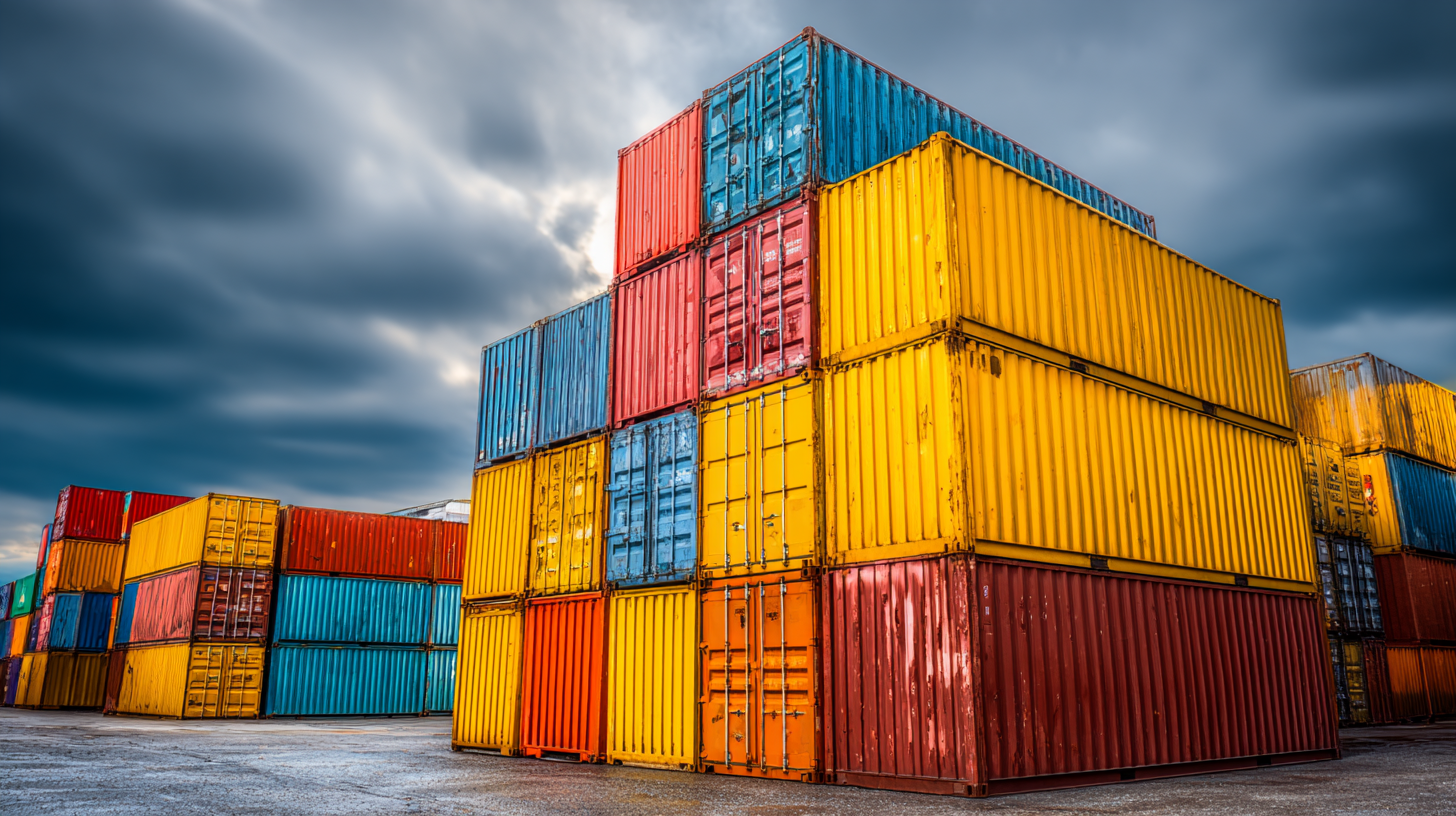
One of the top five containers to consider is the standard dry container, which remains the most widely used option. They are versatile, affordable, and suitable for a wide range of products. Moreover, utilizing high-cube containers may provide additional capacity at a minimal cost increase, allowing shippers to maximize space and minimize shipping frequency. A recent report from the World Shipping Council highlighted that shippers utilizing high-cube containers improved their loading efficiency by approximately 15%, leading to substantial cost savings in the long run. Thus, exploring these options is crucial for any shippers aiming to maintain budget-friendly and efficient shipping solutions in the competitive landscape of 2025.
As global trade continues to expand, the demand for innovative freight container solutions has never been higher. According to a recent report by the International Maritime Organization (IMO), the global shipping industry is projected to grow by 4% annually through 2025. This growth necessitates a shift towards more space-efficient container designs that can maximize load capacity while minimizing costs. The future of freight container design is focused on modular containers that allow for easier stacking and quicker loading and unloading processes. By utilizing advanced materials such as high-strength steel and lightweight composites, manufacturers can produce containers that reduce empty transport weight and improve overall efficiency.
In addition to material advancements, smart technology integration is set to revolutionize freight container usage. A study by the World Shipping Council indicates that containers equipped with IoT technology can help reduce the time spent in transit, potentially saving carriers up to 20% in operational costs. Features such as real-time tracking and condition monitoring will not only enhance supply chain visibility but also ensure better utilization of space throughout the transport journey. Expect to see designs that incorporate these technologies as standard, ultimately leading to smarter, more efficient shipping solutions that cater to the evolving needs of the industry.
| Container Type | Dimensions (LxWxH in meters) | Max Payload (kg) | Volume (m³) | Material |
|---|---|---|---|---|
| Standard Dry Container | 6.058 x 2.438 x 2.591 | 30,480 | 33.2 | Steel |
| Refrigerated Container | 6.058 x 2.438 x 2.591 | 29,000 | 28.4 | Aluminum/Steel |
| Open Top Container | 6.058 x 2.438 x 2.591 | 29,900 | 28.5 | Steel |
| Flat Rack Container | 6.058 x 2.438 x 0.0 | 36,000 | 30.0 | Steel |
| Tank Container | 6.058 x 2.438 x 2.591 | 25,000 | 24.0 | Steel |


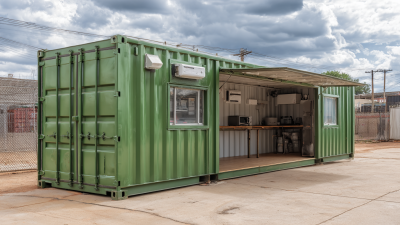
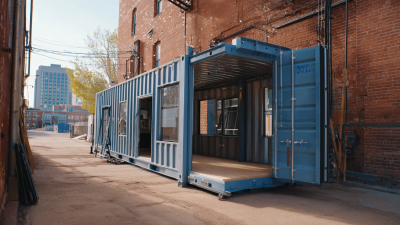
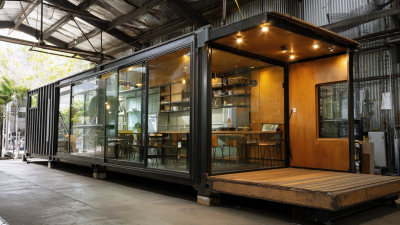
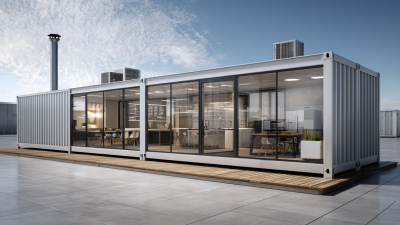
Subscribe to our newsletter for the latest news and exclusive offers.
We hold a long-term view when we build modular rooms taking into consideration your changing needs. Whether it’s shifting your workspace to a new site, redesigning your unit to fit new requirements, or simply clearing the area at the end of the project, our Dismantling & Reassembling teams are pressed into service to get the job done in the quickest possible time and minimum resource wastage.
We understand that every project is unique and therefore has a different set of requirements. That’s why we believe in customizing our solutions to fit individual needs. We are equipped with the right talents, technology, and skillset to offer bespoke modular units, without compromising on turnaround time or quality.
The benefits of choosing Containers ME continues long after the installation of the units as we provide aftersales service for as long as you need. All you have to do is sign the Annual Maintenance Contract (AMC) and enjoy technical support for all the maintenance-related issues. By signing the contract, you can rest assured that a highly professional team of dedicated staff are at your service all year round to attend to your needs.
We specialize in Customized Container Solutions designed to meet diverse needs across the UAE. Our offerings include customized modular containers that cater to various applications, from tailor-made container solutions to bespoke container designs.
Whether you’re looking for personalized container homes or custom modular containers, we have you covered. Our customized container offices provide functional workspaces, while our customized portable containers ensure flexibility on-site. Explore our range of custom container storage units and customized cargo containers to optimize your space.
We also offer custom container leasing and custom container fabrication services, along with customized sea containers designed for secure transport. For specialized needs, our specialized container modifications will help you create the perfect solution for your requirements in both Dubai and the broader UAE.
